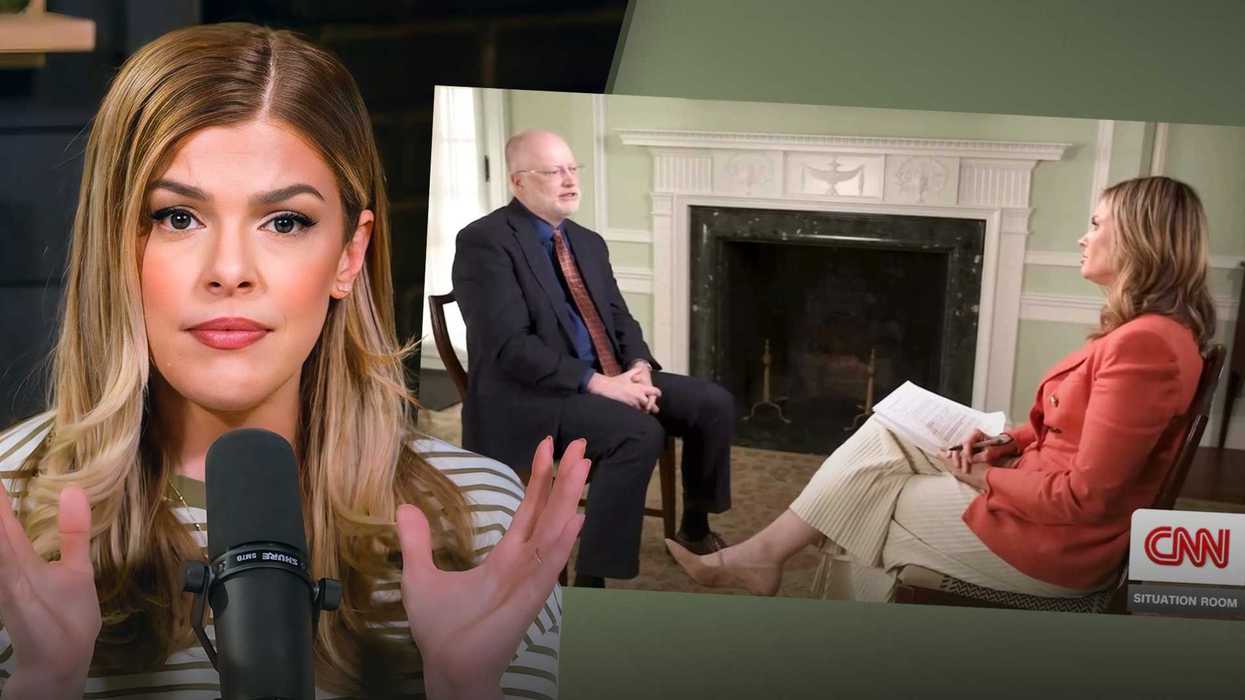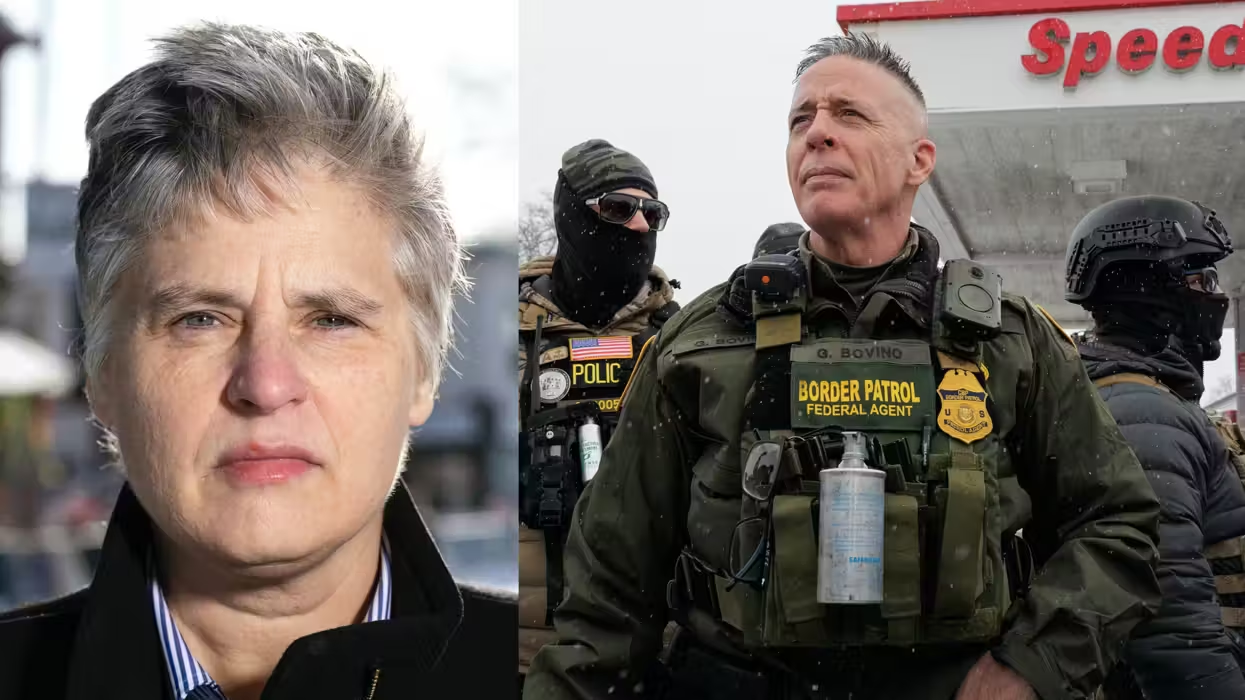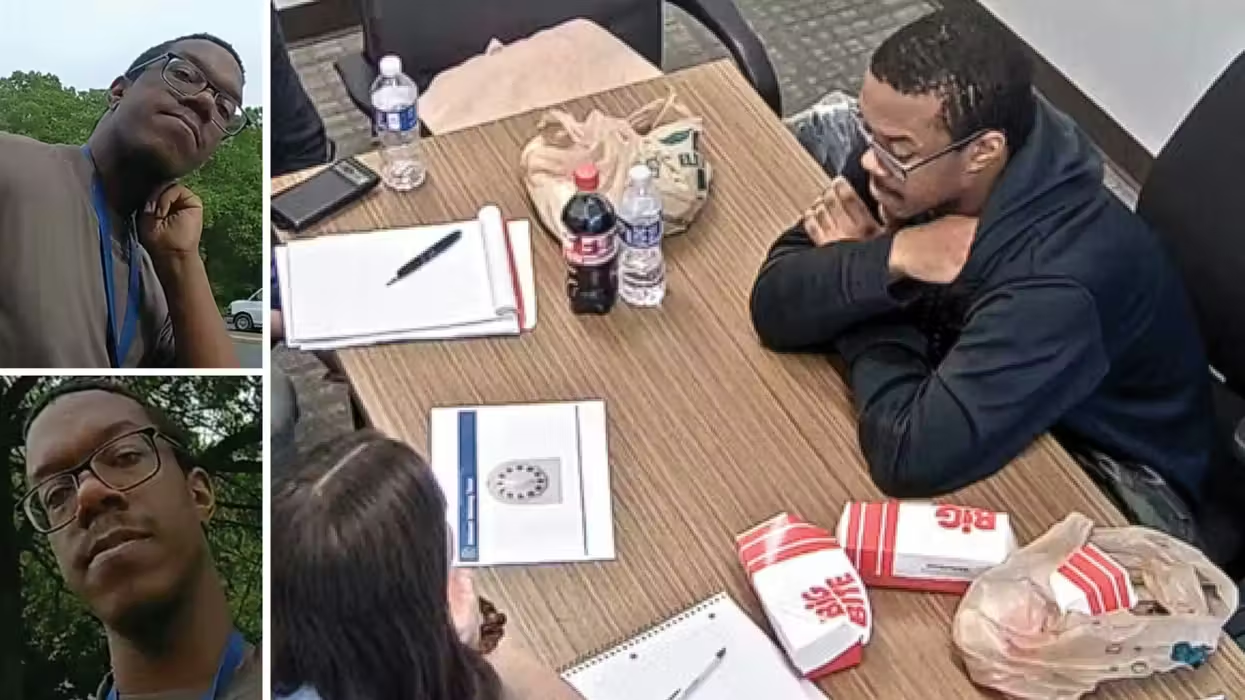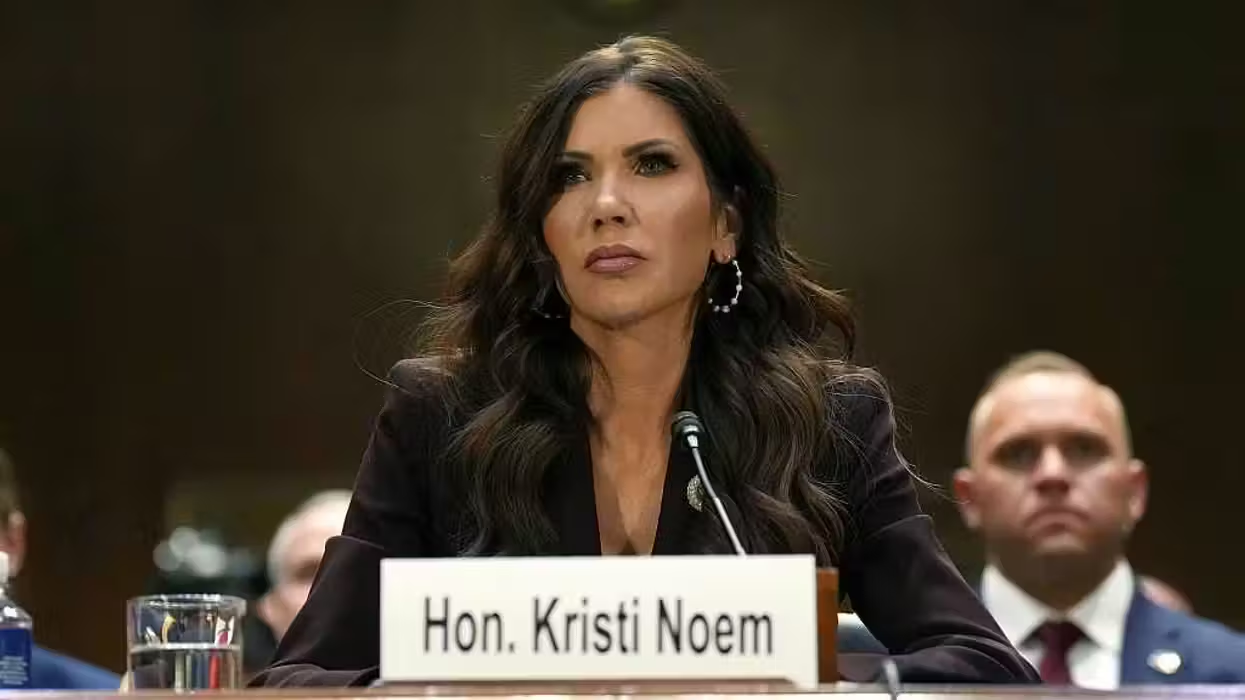
© 2026 Blaze Media LLC. All rights reserved.
"They have this omnipotent power."

DALLAS (TheBlaze/AP) -- Airlines give many reasons for refusing to let you board, but none stir as much debate as this: How you're dressed.
A woman flying from Las Vegas on Southwest this spring says she was confronted by an airline employee for showing too much cleavage. In another recent case, an American Airlines pilot lectured a passenger because her T-shirt bore a four-letter expletive. She was allowed to keep flying after draping a shawl over the shirt.
Both women told their stories to sympathetic bloggers, and the debate over what you can wear in the air went viral.
It's not always clear what's appropriate. Airlines don't publish dress codes. TheBlaze has reported that the advocacy group FlyersRights calling for one such dress code last fall. There are no rules that spell out the highest hemline or the lowest neckline allowed. That can leave passengers guessing how far to push fashion boundaries. Every once in a while the airline says: Not that far.
"It's like any service business. If you run a family restaurant and somebody is swearing, you kindly ask them to leave," says Kenneth Quinn, an aviation lawyer and former chief counsel at the U.S. Federal Aviation Administration.
The American Airlines passenger, who declined to be interviewed by The Associated Press, works for an abortion provider. Supporters suggested that she was singled out because her T-shirt had a pro-choice slogan.
A spokesman for American says the passenger was asked to cover up "because of the F-word on the T-shirt." He says that the airline isn't taking sides in the abortion debate.
Last week, Arijit Guha, a graduate student at Arizona State University, was barred from a Delta flight in Buffalo, N.Y., because of a T-shirt that mocked federal security agents and included the words, "Terrists gonna kill us all." He says the misspelled shirt was satirical and he wore it to protest what he considers racial profiling.
"I thought it was a very American idea to speak up and dissent when you think people's rights are being violated," Guha says. The pilot thought it scared other passengers.
American and Delta are within their rights to make the passengers change shirts even if messages are political, says Joe Larsen, a First Amendment lawyer from Houston who has defended many media companies.
The First Amendment prohibits government from limiting a person's free-speech rights, but it doesn't apply to rules set by private companies, Larsen says. He notes that government security screeners didn't challenge Guha; private Delta employees did.
In short, since airlines and their planes are private property and not a public space like the courthouse steps, crews can tell you what to wear.
In the early years of jet travel, passengers dressed up and confrontations over clothing were unimaginable. They're still rare - there aren't any precise numbers - but when showdowns happen, they gain more attention as aggrieved passengers complain on the Internet about airline clothing cops. It's unwelcome publicity for airlines, which already rate near the bottom of all industries when it comes to customer satisfaction.
Critics complain that airlines enforce clothing standards inconsistently. The lack of clear rules leaves decisions to the judgment of individual airline employees.
Last year, a passenger was pulled off a US Airways jet and arrested at San Francisco International Airport after airline employees say he refused to pull up his low-hanging pants. The local prosecutor declined to file charges against Deshon Marman, a University of New Mexico football player.
Marman's lawyer complained that the same airline repeatedly allowed a middle-age man to travel wearing women's underwear and not much else.
"You can't let someone repugnant like that (the cross-dresser) on the plane and single out this kid because he's black, wearing dreadlocks, and had two or three inches of his underwear showing," says the lawyer, Joseph D. O'Sullivan. "They can't arrest him for what someone perceives to be inappropriate attire."
US Airways spokesman John McDonald says no passengers complained about the cross-dresser until his photo in women's underwear circulated on the Internet after the Marman incident. He says the airline doesn't have a dress code but that employees may talk to a passenger if other people might be offended by the way he's dressed.
"It's not an issue of a dress code, it's one of disruption," like watching pornography within sight of other passengers, McDonald says.
An informal survey of passengers at Dallas-Fort Worth International Airport found much support for limits on clothing.
"Curse words on shirts always bother me," says John Gordon, who just graduated from film school in Florida and was dressed in khaki shorts and a T-shirt. "It's an unspoken rule that when you go out in public, you should be respectful."
But Leigh Ann Epperson, a corporate lawyer who had just flown in from Tokyo, says she wouldn't be bothered if another passenger's shirt bore the F-word.
"If people are paying the price for their tickets, they should be able to wear what they want," says Epperson, who wore a black sweater over a low-cut blouse, black slacks and wedge-type heels.
Airlines say they refund the passenger's fare if they deny boarding for inappropriate attire.
Clashes over clothing and other flash points seem to be increasing, says Alexander Anolik, a travel-law attorney in Tiburon, Calif. He blames an unhappy mix of airline employees who feel underpaid and unloved, and passengers who are stressed out and angry over extra fees on everything from checking a bag to scoring an aisle seat.
Anolik says that passengers should obey requests from airline employees. If passengers don't, they could be accused of interfering with a flight crew - a federal crime. He says passengers should wait until they're off the plane to file complaints with the airline, the U.S. Department of Transportation or in small-claims court.
"They have this omnipotent power," Anolik says of flight crews. "You shouldn't argue your case while you're on the airplane. You're in a no-win scenario - you will be arrested."
Want to leave a tip?
We answer to you. Help keep our content free of advertisers and big tech censorship by leaving a tip today.
Want to join the conversation?
Already a subscriber?
more stories
Sign up for the Blaze newsletter
By signing up, you agree to our Privacy Policy and Terms of Use, and agree to receive content that may sometimes include advertisements. You may opt out at any time.
Related Content
© 2026 Blaze Media LLC. All rights reserved.
Get the stories that matter most delivered directly to your inbox.
By signing up, you agree to our Privacy Policy and Terms of Use, and agree to receive content that may sometimes include advertisements. You may opt out at any time.






